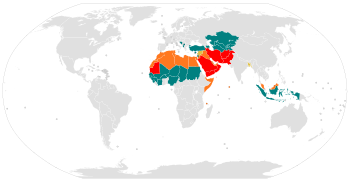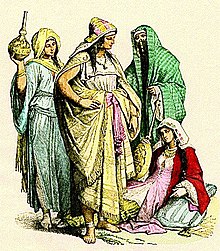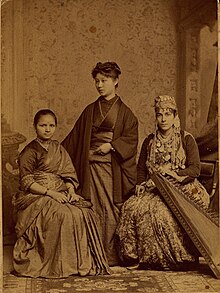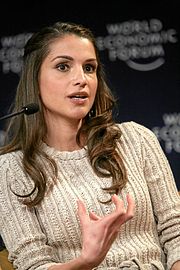The
role of Islam or religion in the Muslim-majority countries as outlined
in the constitutions, including Islamic and secular states
Islamic state
State religion
Unclear / No declaration
Secular state
Secularism
has been a controversial concept in Islamic political thought, owing in
part to historical factors and in part to the ambiguity of the concept
itself.
In the Muslim world, the notion has acquired strong negative
connotations due to its association with removal of Islamic influences
from the legal and political spheres under foreign colonial domination,
as well as attempts to restrict public religious expression by some
secularist nation states.
Thus, secularism has often been perceived as a foreign ideology imposed
by invaders and perpetuated by post-colonial ruling elites, and understood as equivalent to irreligion or antireligion.
Some Islamic reformists like Ali Abdel Raziq and Mahmoud Mohammed Taha have advocated a secular state in the sense of political order that does not impose any single interpretation of sharia on the nation.
A number of Islamic and academic authors have argued that there is no
religious reason that would prevent Muslims from accepting secularism in
the sense of state neutrality toward religion. Abdullahi Ahmed An-Na'im
has argued that a secular state built on constitutionalism, human
rights and full citizenship is more consistent with Islamic history than
modern visions of an Islamic state. Proponents of Islamism (political Islam)
reject secularist views that would limit Islam to matters of personal
belief and instead advocate for a return to Islamic law and Islamic
political authority.
A number of pre-modern polities in the Islamic world demonstrated
some level of separation between religious and political authority,
even if they did not adhere to the modern concept of a state with no
official religion or religion-based laws.
Today, some Muslim-majority countries define themselves as or are
regarded as secular, and many of them have a dual system in which
Muslims can bring familial and financial disputes to sharia
courts. The exact jurisdiction of these courts varies from country to
country, but usually includes marriage, divorce, inheritance, and
guardianship.
Definition
Secularism is an ambiguous concept that could be understood to refer
to anticlericalism, atheism, state neutrality toward religion, the
separation of religion from state, banishment of religious symbols from
the public sphere, or disestablishment (separation of church and state),
although the latter meaning would not be relevant in the Islamic
context, since Islam has no institution corresponding to this sense of
"church".
There is no word in Arabic, Persian or Turkish corresponding
exactly to the English term "secularism". In Arabic, two words are
commonly used as translations: ʿilmānīyah (from the Arabic word for science) and ʿalmanīyah. The latter term, which first appeared at the end of the nineteenth century in the dictionary Muhit al-Muhit written by the Christian Lebanese scholar Butrus al-Bustani, was apparently derived from the Arabic word for "world". Arab activists concerned about marginalization of religious practices and beliefs have sometimes used the term la diniyah (non-religion). In Persian, one finds the loan word sekularizm, while in Turkish laiklik comes from the French laïcité.
Overview
The
concept of secularism was imported along with many of the ideas of
post-enlightenment modernity from Europe into the Muslim world, namely
Middle East and North Africa. Among Muslim intellectuals, the early
debate on secularism centered mainly on the relationship between
religion and state, and how this relationship was related to European
successes in science, technology and governance.
In the debate on the relationship between religion and state,
(in)separability of religious and political authorities in the Islamic
world, or status of the Caliph, was one of the biggest issues.
John L. Esposito,
a professor of international affairs and Islamic studies, points out:
"the post-independent period witnessed the emergence of modern Muslim
states whose pattern of development was heavily influenced by and
indebted to Western secular paradigms or models. Saudi Arabia and Turkey
reflected the two polar positions. [...] The majority of Muslim states
chose a middle ground in nation building, borrowing heavily from the
West and relying on foreign advisers and Western-educated elites."
Esposito also argues that in many modern Muslim countries the
role of Islam in state and society as a source of legitimation for
rulers, state, and government institutions was greatly decreased though
the separation of religion and politics was not total. However while
most Muslim governments replaced Islamic law with legal systems inspired
by western secular codes, Muslim family law (marriage, divorce, and
inheritance) remained in force.
However, many Muslims argue that, unlike Christianity, Islam does
not separate religion from the state and many Muslims around the world
welcome a significant role for Islam in their countries' political life.
It is apolitical Islam, not political Islam, that requires explanation
and that is an historical fluke of the "shortlived heyday of secular
Arab nationalism between 1945 and 1970."
Furthermore, the resurgence of Islam, beginning with the Iranian
revolution of 1978-9, defied the illusions of advocates of
secularization theory. The resurgence of Islam in politics in the most
modernizing of Muslim countries, such as Egypt, Algeria and Turkey,
betrayed expectations of those who believed religion should be at the
margins not the center of public life. Furthermore, in most cases, it
was not rural but urban phenomena, and its leaders and supporters were
educated professionals.
From a more historical perspective, scholar Olivier Roy
argues that "a defacto separation between political power" of sultans
and emirs and religious power of the caliph was "created and
institutionalized ... as early as the end of the first century of the hegira"
and what has been lacking in the Muslim world is "political thought
regarding the autonomy of this space." No positive law was developed
outside of sharia. The sovereign's religious function was to defend the
Islamic community against its enemies, institute the sharia, ensure the public good (maslaha). The state was an instrument to enable Muslims to live as good Muslims and Muslims were to obey the sultan if he did so. The legitimacy of the ruler was "symbolized by the right to coin money and to have the Friday prayer (Jumu'ah khutba) said in his name."
History
Early history
Ira M. Lapidus,
an Emeritus Professor of Middle Eastern and Islamic History at The
University of California at Berkeley, notes that religious and political
power was united while the Prophet Muhammad was leading the ummah, resulting in a non-secular state. But Lapidus states that by the 10th century, some governments in the Muslim world
had developed an effective separation of religion and politics, due to
political control passing "into the hands of generals, administrators,
governors, and local provincial lords; the Caliphs had lost all
effective political power". These governments were still officially
Islamic and committed to the religion, but religious authorities had
developed their own hierarchies and bases of power separate from the
political institutions governing them:
In the same period, religious communities developed independently of the states or empires that ruled them. The ulama regulated local communal and religious life by serving as judges, administrators, teachers, and religious advisers to Muslims. The religious elites were organized according to religious affiliation into Sunni schools of law, Shi'ite sects, or Sufi tariqas. [...] In the wide range of matters arising from the Shari'a - the Muslim law - the 'ulama' of the schools formed a local administrative and social elite whose authority was based upon religion.
Lapidus argues that the religious and political aspects of Muslim
communal life came to be separated by Arab rebellions against the
Caliphate, the emergence of religious activity independent of the actual
authority of the Caliphs, and the emergence of the Hanbali school of law.
The Umayyad caliphate
was seen as a secular state by many Muslims at the time, some of whom
disapproved of the lack of integration of politics and religion. This
perception was offset by a steady stream of wars that aimed to expand
Muslim rule past the caliphate's borders.
In early Islamic philosophy, Averroes presented an argument in The Decisive Treatise providing a justification for the emancipation of science and philosophy from official Ash'ari theology. Because of this, some consider Averroism a precursor to modern secularism.
Others argue that this reflects an incorrect view of his philosophy,
stripped of its inherent Islamic dimensions by European philosophers.
Modern history
Many of the early supporters of Secularist principles in Middle Eastern countries were Baathist and non-Muslim Arabs, seeking a solution to a multi-confessional population and an ongoing drive to modernism.
Many Islamic modernist thinkers
argued against the inseparability of religious and political
authorities in the Islamic world, and described the system of separation
between religion and state within their ideal Islamic world.
Muhammad ʿAbduh, a prominent Muslim modernist thinker, claimed in his book "Al-Idtihad fi Al-Nasraniyya wa Al-Islam"
that no one had exclusive religious authority in the Islamic world. He
argued that the Caliph did not represent religious authority, because he
was not infallible nor was the Caliph the person whom the revelation
was given to; therefore, according to Abduh, the Caliph and other
Muslims are equal. ʿAbduh argued that the Caliph should have the respect
of the umma but not rule it; the unity of the umma is a moral unity
which does not prevent its division into national states.
Abdel Rahman Al-Kawakibi, in his book "Taba'i' Al-Istibdad (The
Characteristics of Tyranny)", discussed the relationship between
religion and despotism,
arguing that "while most religions tried to enslave the people to the
holders of religious office who exploited them, the original Islam was
built on foundations of political freedom standing between democracy and
aristocracy."
Al-Kawakibi suggested that people can achieve a non-religious national
unity, saying:"Let us take care of our lives in this world and let the
religions rule in the next world."
Moreover, in his second book "Umm Al-Qura (The Mother of Villages)" his
most explicit statement with regard to the question of religion and
state appeared in an appendix to the book, where he presented a dialogue
between the Muslim scholar from India and an amir. The amir expressed
his opinion that "religion is one thing and the government is another
... The administration of religion and the administration of the
government were never united in Islam."
Rashid Rida's
thoughts about the separation of religion and state had some
similarities with ʿAbduh and Al-Kawakibi. According to the scholar,
Eliezer Tauber:
He was of the opinion that according to Islam 'the rule over the nation is in its own hands ... and its government is a sort of a republic. The caliph has no superiority in law over the lowest of the congregation; he only executes the religious law and the will of the nation.' And he added: 'For the Muslims, the caliph is not infallible (ma'sum) and not the source of revelation.' And therefore, 'the nation has the right to depose the imam-caliph, if it finds a reason for doing so'.
What is unique in Rida's thought is that he provided details of his
ideas about the future Arab empire in a document, which he called the
"General Organic Law of the Arab Empire". Rida argued that the general
administrative policy of the future empire would be managed by a
president, a council of deputies to be elected from the entire empire,
and a council of ministers to be chosen by the president from among the
deputies. There, the caliph must recognize the 'General Organic Law' and
abide by it. He would manage all the religious matters of the empire.
Rida's ideal Islamic empire would be administered in practice by a
president, while the caliph would administer only religious affairs and
would be obliged to recognize the organic law of the empire and abide by
it.
As seen above, these arguments about separability of religious
and political authorities in the Islamic world were greatly connected
with the presence of the Caliphate.
Therefore, the abolishment of the Caliphate by Turkish government in
1924 had considerable influence on such arguments among Muslim
intellectuals.
The most controversial work is that of Ali Abd al-Raziq, an Islamic Scholar and Shari’a judge who caused a sensation with his work "Islam and the Foundations of Governance (Al-Islam Wa Usul Al-Hukm)" in 1925. He argued that there were no clear evidence in the Quran and the hadith,
which justify a common assumption: to accept the authority of the
caliph is an obligation. Furthermore, he claimed that it was not even
necessary that the ummah
should be politically united and religion has nothing to do with one
form of government rather than another. He argued that there is nothing
in Islam which forbids Muslims to destroy their old political system and
build a new one on the basis or the newest conceptions of the human
spirit and the experience of nations.
This publication caused a fierce debate especially as he recommended
that religion can be separated from government and politics. He was
later removed from his position. Rosenthall commented on him saying
"we meet for the first time a consistent, unequivocal theoretical assertion of the purely and exclusively religious character of Islam".
Taha Hussein, an Egyptian writer, was also an advocate for the separation of religion and politics from a viewpoint of Egyptian nationalism. Hussein believed that Egypt always had been part of Western civilization
and that Egypt had its renaissance in the nineteenth century and had
re-Europeanized itself. For him, the distinguishing mark of the modern
world is that it has brought about a virtual separation of religion and
civilization, each in its own sphere. It is therefore quite possible to
take the bases of civilization from Europe without its religion,
Christianity. Moreover, he believed that it is easier for Muslims than
for Christian, since Islam has no priesthood, and so there has grown up
no vested interest in the control of religion over society.
Secular feminism
Azza
Karam (1998:13) describes secular feminists as follows: "Secular
feminists firmly believe in grounding their discourse outside the realm
of any religion, whether Muslim or Christian, and placing it, instead
within the international human rights discourse. They do not ‘waste
their time’ attempting to harmonize religious discourses with the
concept and declarations pertinent to human rights. To them religion is
respected as a private matter for each individual, but it is totally
rejected as a basis from which to formulate any agenda on women’s
emancipation. By so doing, they avoid being caught up in interminable
debates on the position of women with religion."
Generally, secular feminist activists call for total equality between
the sexes, attempt to ground their ideas on women’s rights outside
religious frameworks, perceive Islamism as an obstacle to their equality
and a linkage to patriarchal values. They argue that secularism was
important for protecting civil rights.
Secular states with majority Muslim populations
- Albania
- Azerbaijan
- Bosnia-Herzegovina
- Burkina Faso
- Chad
- Côte d'Ivoire
- Guinea
- Guinea-Bissau
- Indonesia (except Aceh)
- Kazakhstan
- Kosovo
- Kyrgyzstan
- Mali
- Niger
- Northern Cyprus
- Senegal
- Sierra Leone
- Tajikistan
- Turkey
- Turkmenistan
- Uzbekistan
- West Bank
Secularist movements by state
Turkey
Secularism in Turkey was both dramatic and far reaching as it filled the vacuum of the fall of the Ottoman Empire after World War I. With the country getting down Mustafa Kemal Atatürk
led a political and cultural revolution. "Official Turkish modernity
took shape basically through a negation of the Islamic Ottoman system
and the adoption of a west-oriented mode of modernization."
- The Caliphate was abolished.
- Religious lodges and Sufi orders were banned.
- A secular civil code based on Swiss civil code was adopted to replace the previous codes based on Islamic law (shari’a) outlawing all forms of polygamy, annulled religious marriages, granted equal rights to men and women, in matters of inheritance, marriage and divorce.
- The religious court system and institutions of religious education were abolished.
- The use of religion for political purposes was banned.
- A separate institution was created that dealt with the religious matters of the people.
- The alphabet was changed from Arabic to Latin.
- A portion of religious activity was moved to the Turkish language, including the Adhan (call to prayer) which lasted until 1950. This was done by the second president of the republic of Turkey.
Throughout the 20th century secularism was continuously challenged by Islamists. At the end of the 20th century and beginning of the 21st century, political Islamists and Islamic democrats such as the Welfare Party and Justice and Development Party
(AKP) gained in influence, with the AKP in the 2002 elections acquiring
government and holding on to it ever since with increasingly
authoritarian methods.
Lebanon
Lebanon is a parliamentary democracy within the overall framework of Confessionalism, a form of consociationalism in which the highest offices are proportionately reserved for representatives from certain religious communities.
A growing number of Lebanese, however, have organized against the confessionalist system, advocating for an installation of laïcité in the national government. The most recent expression of this secularist advocacy was the Laïque Pride march held in Beirut on April 26, 2010, as a response to Hizb ut-Tahrir's growing appeal in Beirut and its call to re-establish the Islamic caliphate.
Tunisia
Under the leadership of Habib Bourguiba (1956–1987), Tunisia’s post independence government pursued a program of secularization.
Bourguiba modified laws regarding habous (religious endowments),
secularized education and unified the legal system so that all
Tunisians, regardless of religion, were subject to the state courts. He
restricted the influence of the religious University of Ez-Zitouna
and replaced it with a faculty of theology integrated into the
University of Tunis, banned the headscarf for women, made members of the
religious hierarchy state employees and ordered that the expenses for
the upkeep of mosques and the salaries of preachers to be regulated.
Moreover, his best known legal innovations was the ‘Code du
Statut Personel’ (CSP) the laws governs issues related to the family:
marriage, guardianship of children, inheritance and most importantly the
abolishing of polygamy and making divorce subject to judicial review.
Bourguiba clearly
wanted to undercut the religious establishment’s ability to prevent his
secularization program, and although he was careful to locate these
changes within the framework of a modernist reading of Islam and
presented them as the product of ijtihad (independent interpretation) and not a break with Islam, he became well known for his secularism. John Esposito
says that "For Bourguiba, Islam represented the past; the west was
Tunisia's only hope for a modern future, but he was mistaken, Islam is
modernization"
Following increasing economic problems, Islamist movements came
about in 1970 with the revival of religious teaching in Ez-Zitouna
University and the influence which came from Arab religious leaders like
Syrian and Egyptian Muslim Brotherhoods. There is also influence by Hizb ut-Tahrir, whose members issue a magazine in Tunis named Azeytouna.
In the aftermath, the struggle between Bourguiba and Islamists became
uncontrolled and in order to repress the opposition the Islamist
leaderships were exiled, arrested and interrogated.
Ennahda Movement, also known as Renaissance Party or simply Ennahda, is a moderate Islamist political party in Tunisia. On 1 March 2011, after the secularist dictatorship of Zine El Abidine Ben Ali collapsed in the wake of the 2011 Tunisian revolution,
Tunisia's interim government granted the group permission to form a
political party. Since then it has become the biggest and most
well-organized party in Tunisia, so far outdistancing its more secular
competitors. In the Tunisian Constituent Assembly election, 2011,
the first honest election in the country's history with a turn out of
51.1% of all eligible voters, the party won 37.04% of the popular vote
and 89 (41%) of the 217 assembly seats, far more than any other party.
Egypt
Secularism in Egypt
has had a very important role to play in both the history of Egypt and
that of the Middle East. Egypt’s first experience of secularism started
with the British Occupation (1882–1952), the atmosphere which allowed
propagation of western ideas. In this environment, pro-secularist
intellectuals like Ya'qub Sarruf, Faris Nimr, Nicola Haddad who sought
political asylum from Ottoman Rule were able to publish their work. This
debate had then become a burning issue with the work of Egyptian Shaykh
Ali abd al-Raziq (1888–1966), "The most momentous document in the crucial intellectual and religious debate of modern Islamic history"
By 1919 Egypt had its first political secular entity called the Hizb 'Almani (Secular Party) this name was later changed to the Wafd party.
It combined secular policies with a nationalist agenda and had the
majority support in the following years against both the rule of the
king and the British influence. The Wafd party supported the allies
during World War II
and then proceeded to win the 1952 parliamentary elections, following
these elections the prime minister was overthrown by the King leading to
riots. These riots precipitated a military coup after which all
political parties were banned including the Wafd and the Muslim Brotherhood.
The government of Gamel Abdel Nasser
was secularist-nationalist in nature which at the time gathers a great
deal of support both in Egypt and other Arab states. Key elements of Nasserism:
- Secularist-Nationalist dictatorship: No religious or other political movements allowed to impact government.
- Modernization, Industrialization and Nationalization; Socialist economy
- Concentration on Arab values, identity and nationalism rather than Muslim values, identity and nationalism .
Secular legacy of Nasser's dictatorship influenced dictatorial periods of Anwar Sadat and Hosni Mubarak and secularists ruled Egypt until 2011 Egyptian revolution. Nevertheless, the Egyptian Muslim Brotherhood has become one of the most influential movements in the Islamic world, particularly in the Arab world. For many years it was
described as "semi-legal" and was the only opposition group in Egypt able to field candidates during elections. In the Egyptian parliamentary election, 2011–2012, the political parties identified as "Islamist" (the Brotherhood's Freedom and Justice Party, Salafi Al-Nour Party and liberal Islamist Al-Wasat Party) won 75% of the total seats. Mohamed Morsi, an Islamist democrat of Muslim Brotherhood was the first democratically elected president of Egypt. Nowadays, most Egyptian proponents of secularism emphasize the link between secularism and ‘national unity’ between Coptic Christians and Muslims.
Syria
The process of secularization in Syria began under the French mandate
in the 1920s and went on continuously under different governments since
the independence. Syria has been governed by the Arab nationalist Ba'ath Party since 1963. The Ba'ath government combined Arab socialism
with secular ideology and an authoritarian political system. The
constitution guarantees religious freedom for every recognized religious
communities, including many Christian denominations. All schools are
government-run and non-sectarian, although there is mandatory religious
instruction, provided in Islam and/or Christianity. Political forms of Islam are not tolerated by the government. The Syrian legal system is primarily based on civil law,
and was heavily influenced by the period of French rule. It is also
drawn in part from Egyptian law of Abdel Nasser, quite from the Ottoman Millet system and very little from Sharia.
Syria has separate secular and religious courts. Civil and criminal
cases are heard in secular courts, while the Sharia courts handle
personal, family, and religious matters in cases between Muslims or
between Muslims and non-Muslims. Non-Muslim communities have their own religious courts using their own religious law.
Iran
Following the military coup of 21 February 1921, Reza Khan had
established himself as the dominant political personality in the
country. Fearing that their influence might be diminished, the clergy of
Iran proposed their support and persuaded him to assume the role of the
Shah.
1925–1941: Reza Shah
began to make some dramatic changes to Iranian society with the
specific intention of westernization and removing religion from public
sphere. He changed religious schools to secular schools, built Iran’s
first secular university and banned the hijab in public. Nevertheless,
the regime became totally undemocratic and authoritarian with the
removal of Majles power (the first parliament in 1906) and the clampdown
on free speech.
1951–1953: During the early 1950s, Prime Minister Mohammad Mosaddegh
was again forming a secular government with a socialist agenda with the
specific aim of reducing the power held by the clergy. However his plan
to nationalize the colonial oil interests held by the Anglo-Iranian Oil
Company, (later British Petroleum), attracted the ire of the United
Kingdom. In response, the United Kingdom with the help of the CIA, supported a coup which removed Mossadeq from power and reinstated Mohammad Reza Shah.
1962–1963: Using the mandate of westernization, Mohammad Reza Shah introduced White Revolution, aiming to transform Iran into a Westernized secular capitalist country.
1963–1973: Opposition rallied united behind Ayatollah Ruhollah Khomeini and by the end of the 1970s the Shah was overthrown in an Islamic Revolution (1979).
Pakistan
Early in the history of the state of Pakistan (12 March 1949), a parliamentary resolution (the Objectives Resolution) was adopted, just a year after the death of Muhammad Ali Jinnah, the founder of Pakistan, in accordance with the vision of other founding fathers of Pakistan (Muhammad Iqbal, Liaquat Ali Khan). proclaiming:
Sovereignty belongs to Allah alone but He has delegated it to the State of Pakistan through its people for being exercised within the limits prescribed by Him as a sacred trust.
- The State shall exercise its powers and authority through the elected representatives of the people.
- The principles of democracy, freedom, equality, tolerance and social justice, as enunciated by Islam, shall be fully observed.
- Muslims shall be enabled to order their lives in the individual and collective spheres in accordance with the teachings of Islam as set out in the Quran and Sunnah.
- Provision shall be made for the religious minorities to freely profess and practice their religions and develop their cultures.
According to Pakistani secularists, this resolution differed from the Muhammad Ali Jinnah's 11th August Speech
that he made in the Constitutive Assembly, but however, this resolution
was passed by the rest of members in the assembly after Muhammad Ali Jinnah's death in 1948. This resolution later became key source of inspiration for writers of Constitution of Pakistan and is included in constitution as preamble. However, Pakistan is an Islamic republic, with Islam as the state religion; it has aspects of secularism inherited from its colonial past. Islamists and Islamic democratic parties in Pakistan
are relatively less influential than democratic Islamists of other
Muslim democracies however they do enjoy considerable street power.
The Council of Islamic Ideology is a body that is supposed to advise the Parliament of Pakistan on bringing laws and legislation in alignment with the principles of the Quran and Sunnah, though it has no enforcement powers. The Federal Shariat Court can strike down any law deemed un-Islamic, though its decisions can be overturned by the Supreme Court of Pakistan.
Opposition and critique
Secularism and religion
Islamists believe that Islam fuses religion and politics, with normative political values determined by the divine texts.
It is argued that this has historically been the case and the
secularist/modernist efforts at secularizing politics are little more
than jahiliyyah (ignorance), kafir (unbelief/infidelity), irtidad (apostasy) and atheism. "Those who participated in secular politics were raising the flag of revolt against Allah and his messenger."
Saudi scholars denounce secularism as strictly prohibited in
Islamic tradition. The Saudi Arabian Directorate of Ifta', Preaching and
Guidance, has issued a directive decreeing that whoever believes that
there is a guidance (huda) more perfect than that of the Prophet, or that someone else's rule is better than his is a kafir.
It lists a number of specific tenets which would be regarded as a
serious departure from the precepts of Islam, punishable according to
Islamic law. For example:
- The belief that human made laws and constitutions are superior to the Shari'a.
- The opinion that Islam is limited to one's relation with God, and has nothing to do with the daily affairs of life.
- To disapprove of the application of the hudud (legal punishments decreed by God) that they are incompatible in the modern age.
- And whoever allows what God has prohibited is a kafir.
In the view of Tariq al-Bishri,
"secularism and Islam cannot agree except by means of talfiq [combining
the doctrines of more than one school, i.e., falsification], or by each
turning away from its true meaning."
Secularism and authoritarianism
A number of scholars believe that secular governments in Muslim
countries have become more repressive and authoritarian to combat the
spread of Islamism,
but this increased repression may have made many Muslim societies more
opposed to secularism and increased the popularity of Islamism the
Middle East.
Authoritarianism has left in many countries the mosque as the only place to voice political opposition. Scholars like Vali Nasr argue that the secular elites in the Muslim world were imposed by colonial powers to maintain hegemony.
Secularism is also associated with military regimes, such as those in Turkey and Algeria. The Islamic Salvation Front (FIS) succeeded in December 1991 elections in Algeria and the Welfare Party succeeded in the Turkish 1995 elections. However, both of these parties were eliminated through military coups in order to protect secularism.
While Welfare Party government in Turkey was forced to resign from the
office by Turkish military in February 1997 with a military intervention
which is called as "post modern coup", FIS in Algeria lived an austere military coup which carried the country in to a civil war in 1992. Military forces in those countries could use their power in undemocratic ways in order to ‘protect secularism’.
In some countries, the fear of Islamist takeover via democratic processes has led to authoritarian measures against Islamist political parties.
"The Syrian regime was able to capitalize on the fear of Islamist coming
to power to justify the massive clampdown on the Syrian Muslim
Brotherhood." When American diplomats asked Hosni Mubarak
to give more rights to the press and stop arresting the intellectuals,
Mubarak rejected it and said, "If I do what you ask, the fundamentalists
will take over the government in Egypt. Do you want that?" Or when
President Bill Clinton asked Yasser Arafat to establish democracy in Palestine in 2001, Yasser Arafat also replied similarly. "He said that in a democratic system Islamist Hamas will surely take control of the government in Palestine". Most secularist autocrats in the Middle East drew upon the risk of Islamism in order to justify their autocratic rule of government in the international arena.









